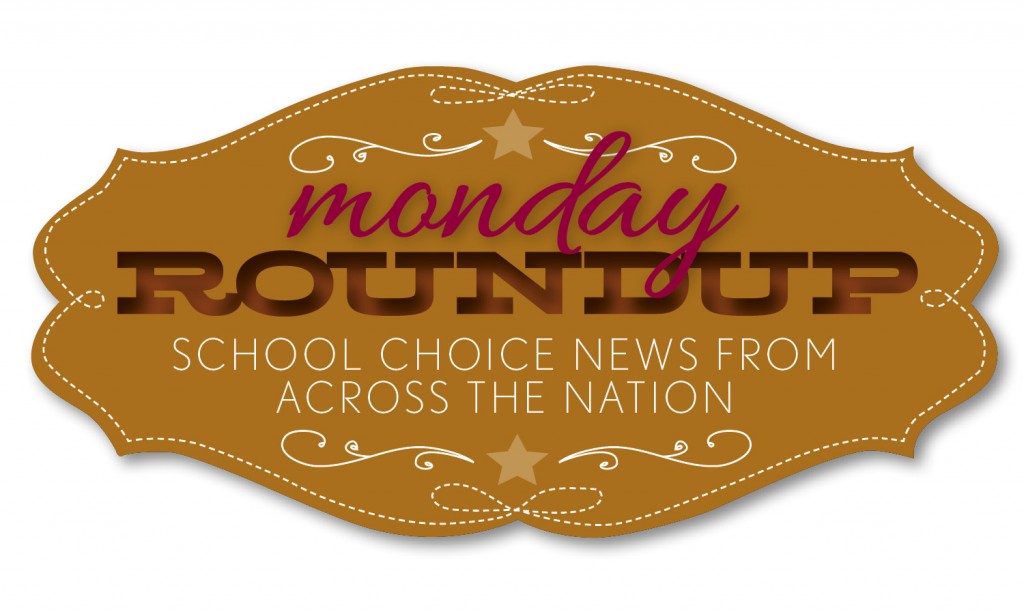The story: After two court victories in the 1990s, Wisconsin, the national birthplace of modern-era school choice, now faces a court challenge that, if successful, could send more than 60,000 students back to the state’s district schools.
This time, a brewery owner, former congressional candidate and super PAC founder is funding a case that argues the state’s four scholarship programs and independent charter schools, which are authorized by organizations other than school districts, are a “cancer” with a funding method that has put school districts into “a death spiral.” The case, brought on behalf of eight Wisconsin residents, is going straight to the state Supreme Court.
School choice supporters say the lawsuit is an attempt to capitalize on this year’s Wisconsin Supreme Court election, which gave liberals a 4-3 majority for the first time in 15 years. The high court has not announced whether it will hear the case.
Flashback: In 1990, Wisconsin launched the nation’s first K-12 school choice program, empowering low-income parents to remove their children from failing Milwaukee schools and enroll them in the city’s private schools. The scholarship allowed up to 1,000 students to attend a non-sectarian private school of their families’ choice.
The ink on the bill was barely dry before it ended up in a legal challenge that made it to the Wisconsin Supreme Court. Opponents argued that the legislation was a special interest program and that lawmakers approved it improperly. An appeals court struck down the program, but state supreme court upheld it in a 4-3 ruling, saying in the majority opinion that the program’s limited scope “is not an abandonment of the public school system.”
The programs survived a second court challenge in 1998 when the state supreme court ruled that the state’s expansion to let religious schools participate did not violate the federal Establishment Clause. The U.S. Supreme Court declined to hear the appeal.
State of play: Today, four school choice programs serve Wisconsin families, including three for lower-income families and one for students with special needs. The state also Wisconsin Institute for Law & Liberty (WILL), a public interest law firm, recently filed a brief outlining why it thinks the court should decline the request to consider the case. The state also offers independent charter schools as another option.

The organization has also filed a motion to represent 22 families as intervenors if the high court agrees to hear the case. WILL attorney Cory Brewer sat down with NextSteps to share some details. Responses have been edited for clarity and brevity.
Q. The state supreme court has already upheld Wisconsin’s school choice programs twice in the 1990s. Why is this happening now?
A. We think this petition is politically motivated based on the recent shift in the makeup of the court. A primary backer of the case is Kirk Bangstad, who owns the Minocqua Brewing Company and runs the Minocqua Brewing Super PAC. The Super PAC has a history of supporting liberal candidates and has been telegraphing aspects of this case for weeks on Facebook. The state’s educational establishment is lining up to attack choice and charter schools with this case. The state teachers union has expressed support for the case. One of the petitioners is Julie Underwood, the former dean of the School of Education at the University of Wisconsin—Madison.
Q. So, what is the new argument the petitioners are making about the programs’ constitutionality?
A. The lawsuit brings three claims as to why each of those four programs is illegal. Those claims are:
The fourth claim they raise in the lawsuit challenges “revenue limits” which impose a cap on how much money each school district is allowed to generate per pupil from all sources (this is a way to control property tax expenses, and revenue limits have been in place since the 1990s).
Q. What allows the petitioners to take this directly to the state Supreme and bypass lower courts?
A. The Wisconsin Constitution provides the Wisconsin Supreme Court with so-called original jurisdiction. This gives the court the power to hear cases that have not first been heard by the lower courts. Sometimes, a quick and definitive answer to a legal question serves the public interest. The court has historically been fairly sparse on original actions over the years, and cases requiring complex and intensive factual development are not appropriate for original action. Normally, when deciding whether to accept a case as an original action, the court errs on the side of caution.
Q. Does the Supreme Court usually agree to hear direct petitions?
A. A Marquette professor studied this issue a few years ago. According to him, from the 2003-04 term through the 2020-21 term, there were 103 original action petitions denied and 15 granted, seven of which were in the 2019-20 term. Each year, the court hears about 50 to 60 cases total, so original actions do not constitute a significant part of its workload.
Q. How are the public schools actually doing in Wisconsin? The plaintiffs say in their petition that the scholarship programs have put school districts in a “death spiral” and say that for every scholarship student funded, the district lose the equivalent of funding for five students. What is your response?
A. We don’t believe petitioners’ claims are rational or factually accurate. Public schools continue to receive additional funding every year, and frankly school choice is very popular with the voters of Wisconsin. Also, school districts in Wisconsin are funded through a combination of state and local aid, and the local aid means that public schools get substantially more than the voucher in most every case. Inflation-adjusted spending is far higher today than when school choice began in 1990.
Q. If these petitioners prevail and the programs are shut down, what would that mean for school choice families in Wisconsin? Also, how would it impact district schools that must absorb many of these students?
A. The stakes could not be higher. Over 60,000 students could see their education options go away if the relief sought by the petitioners were to be granted. We believe this would have a massive negative impact, including on public schools. Not only do public schools benefit from the competition, but we do not believe they have the capacity to absorb all the displaced students. As for practical implications, school choice enrollment (Milwaukee Parental Choice Program, Racine Parental Choice Program, Wisconsin Parental Choice Program and the Special Needs Scholarship Program) is 54,949 for the 2023-24 school year. Independent charters enroll another 10,802 students. Demographically, school choice is disproportionately used by students from minority backgrounds. According to data from the state report card, approximately 32% of participating students are African American, 28% are Hispanic, 32% are white, and the remainder are something else.
 Wisconsin
WisconsinPublic schools aren’t always required to serve all students and this fact served as an impetus for the creation of Wisconsin’s new special needs voucher program. The program, signed into law on Sunday, allows special needs students to enroll in private schools if they A) have been enrolled in a public school at least one year and B) if they were previously rejected by another school district for open enrollment.
Wisconsin flag
The eligibility requirements are tight, but it stems from a lawsuit claiming districts are denying school transfers because the student has a special need. Ironically, this is a charge usually levied by school choice critics to attack charter and private school options.
The program begins during the 2016-17 school year and the scholarships will be worth about $12,000.
 Alabama: Judge Gene Reese issues a stay on his own injunction against the Alabama Accountability Act school choice program (AL.com, Montgomery Advertiser, redefinED, American Federation for Children). The decision to lift the injunction takes uncertainty away from low-income families (AL.com). Jeff Reed, public relations director for the Friedman Foundation, says school choice thrives in the state even with the lawsuit (One News Now).
Alabama: Judge Gene Reese issues a stay on his own injunction against the Alabama Accountability Act school choice program (AL.com, Montgomery Advertiser, redefinED, American Federation for Children). The decision to lift the injunction takes uncertainty away from low-income families (AL.com). Jeff Reed, public relations director for the Friedman Foundation, says school choice thrives in the state even with the lawsuit (One News Now).
Arizona: Eileen Sigmund, president of the Arizona Charter Schools Association, and Glenn Hamer, the association's vice chairman, say charter schools provide some of the best education in the state and are still looking to improve (Arizona Republic).
Connecticut: Education leaders in Bridgeport drop the idea of suing the state over approving six charter schools in the area after the city attorney says the district has no basis for a lawsuit (Stamford Advocate).
Delaware: Lawmakers debate education savings accounts (JayPGreene.com, Choice Media, Education Week). The News Journal editorial board supports school choice if parents pick charter schools but not if parents want vouchers or education savings accounts to choose private schools.
Florida: The Florida PTA, state teachers union and Florida NAACP urge the governor to veto a school choice bill that includes expansion of tax credit scholarships (the scholarship program is administered by Step Up For Students, which co-hosts this blog). (Tampa Bay Times, Orlando Sentinel).
Idaho: Terry Ryan, president of the Idaho Charter School Association, says over 19,000 children attend charter schools in the state, making support for it a winning proposition for elected Republicans (Idaho Education News). (more…)
 Alabama: Scott Beaulier, chair of the Economics and Finance Division at Troy University, says there is a large body of evidence supporting vouchers but the U.S. Department of Justice and others keep getting in the way (AL.com). The Alabama Education Association spent $7 million to defeat school choice and education reform supporters (Associated Press).
Alabama: Scott Beaulier, chair of the Economics and Finance Division at Troy University, says there is a large body of evidence supporting vouchers but the U.S. Department of Justice and others keep getting in the way (AL.com). The Alabama Education Association spent $7 million to defeat school choice and education reform supporters (Associated Press).
Colorado: A new study on public school transfers shows middle- and upper-class students are more likely to request transfers to another public school than less affluent students (Education Week). ACE Scholarships releases a study on the impact of scholarships on students in the state (Ediswatching.org).
Connecticut: Education leaders in Bridgeport complain that the expansion of charter schools is hurting the district's ability to predict student enrollment and estimate a budget (Connecticut Post).
D.C.: District lawyers claim a charter school funneled millions to a for-profit company to do work that charter school officials were already doing (Washington Post).
Delaware: A new bill will allow the Delaware Board of Education to restrict charter schools to geographic areas and by grade and academic emphasis if the board deems the charters will affect nearby public schools (Delaware Online). Republicans propose a voucher program allowing full scholarships for Free and Reduced Price Lunch students and 25 percent scholarships for students in families earning up to $110,000 annaully (WDDE 99.1 FM).
Florida: Palm Beach County wants a special property tax to fund arts education but the new tax won't benefit the 13,000 students attending charter schools in the county (Sun-Sentinel). McKay Scholarships offer special needs students a way to find a different school that works well for them, but Fund Education Now, a group suing to enforce school uniformity, wants special ed students to have the exact same standards, instructions and method of teacher training at all schools (Sun-Sentinel). The state's graduation rate improves (Education Week, redefinED). (more…)
 Speaking before the Milwaukee Rotary Club on May 6th, Wisconsin gubernatorial candidate Mary Burke claimed the state’s school voucher program “has no research that shows that it’s going to improve student learning.” PolitiFact Wisconsin examined some school choice research and noted Burke’s claim was an “overstatement,” but then rated it “Mostly True.”
Speaking before the Milwaukee Rotary Club on May 6th, Wisconsin gubernatorial candidate Mary Burke claimed the state’s school voucher program “has no research that shows that it’s going to improve student learning.” PolitiFact Wisconsin examined some school choice research and noted Burke’s claim was an “overstatement,” but then rated it “Mostly True.”
PolitiFact must be grading on a curve.
There is no nuance about the word “no”; in this instance, it means “none” or “zero.” So why does PolitiFact cite three research papers that find academic gains attributable to vouchers and then give the “no research” claim a “Mostly True” rating?
To achieve such a conclusion, PolitiFact researchers had to misread the evidence they evaluated, overvalue academic caution (ironically while rating a politician’s hyperbole) and exclude other supportive research. Let me explain by offering more detail about the research PolitiFact cited, and the other research it inexplicably overlooked.
Public Policy Forum’s report found public school students scored higher on state assessments than private school voucher students. However, the report failed to control for income differences or provide test scores of voucher students prior to using the voucher. It is possible voucher students are poorer, on average, or that they tended to score worse on state assessments even before receiving a voucher (as is the case here in Florida). Because of these faults, the report cannot make any claims about the impact of vouchers on students. PolitiFact overlooked the PPF study’s methodological weaknesses and gave the report greater weight than all other studies mentioned.
PolitiFact also cited a multi-year study by researchers at the University of Arkansas, which revealed statistically significant achievement growth in reading, but not math, in the final year. Academic researchers tend to be cautious in their conclusions. The researchers in this case mentioned the achievement gains coincided with implementation of high-stakes testing and noted this could be an alternative explanation for the observed gains. But PolitiFact overstates the nuance so much it functionally ignores the positive finding.
PolitiFact does accurately cite two reports about vouchers in Milwaukee: One from 2003, by Caroline Hoxby, found public school students saw test score gains when public schools faced competition from vouchers; and one from 2008, by researchers at the Federal Reserve, found improved public school performance once the voucher program expanded the supply of private schools and the amount of the scholarship in 1998. (more…)
 Alabama: A state judge struck down the tax credit scholarship program on procedural grounds while ignoring the teacher union claims that the program violated separation of church and state (Montgomery Advertiser, Education Week, AL.com, WAFF, Watchdog). Lawyers for the state and parents file a motion to lift the injunction against the program (AL.com). Parents and teachers react to the judge's ruling (WSFA 12). Judge Reese, who declared the tax credit scholarship program unconstitutional, is a Democrat and has thwarted Republicans on education issues in the past (AL.com). Katherine Green Robertson, a senior policy counsel for the Alabama Policy Institute, says the court decision was a political attack on students and school choice (AL.com).
Alabama: A state judge struck down the tax credit scholarship program on procedural grounds while ignoring the teacher union claims that the program violated separation of church and state (Montgomery Advertiser, Education Week, AL.com, WAFF, Watchdog). Lawyers for the state and parents file a motion to lift the injunction against the program (AL.com). Parents and teachers react to the judge's ruling (WSFA 12). Judge Reese, who declared the tax credit scholarship program unconstitutional, is a Democrat and has thwarted Republicans on education issues in the past (AL.com). Katherine Green Robertson, a senior policy counsel for the Alabama Policy Institute, says the court decision was a political attack on students and school choice (AL.com).
California: Campbell Brown spotlights Vergara v. California, where nine students are suing the state over education policies they argue worsen quality (The Daily Beast).
Colorado: A group opposing education vouchers takes their case to the state Supreme Court (Chalkbeat).
D.C.: A proposed bill will make it easier for children of charter school teachers to enroll where their parents work (Washington Post).
Florida: The first proposed charter school conversion in Broward County awaits approval (Miami Herald). A group amends a 2009 adequacy lawsuit to include McKay Scholarships, tax-credit scholarships and charter schools as culprits for the alleged under-funding of public schools (Orlando Sentinel, redefinED). The Florida League of Women Voters release a report critical of charter schools (Jacksonville Free Press, Orlando Sentinel, Tampa Bay Times). Charter school advocates call the report "flawed" (Palm Beach Post). Henry Fortier, the superintendent of Catholic schools for the Orlando Diocese, says school choice doesn't pit private schools against public schools (Orlando Sentinel). Leaders in Pinellas County react to changes in the law including the expansion of school choice in the state (Tampa Tribune). School choice critics ask the governor to veto the new laws expanding school choice in the state (WJHG).
Illinois: The Chicago Tribune hosts a debate between school choice supporters and opponents (Huffington Post). The senate votes to require charter schools to accept special needs and English language learners (Sun Times).
Indiana: A group opposing vouchers and charter schools previews a documentary to teachers, union members and school administrators (Muncie Free Press). Enrollment at Indiana Cyber School doubles but the school is still in debt (Trib Town).
Kentucky: Jim Waters, president of the Bluegrass Institute, says charter school critics shouldn't focus on administrator salaries when some school districts have more employees making over $100,000 a year than the state capitol (Times-Tribune).
Louisiana: The last five traditional public schools in New Orleans close their doors for good (Washington Post, Joannejacobs.com). Gov. Bobby Jindal roasts President Obama over many issues including parental choice (Times-Picayune). The House votes 73-15 to allow students to transfer out of lower-performing schools (New Orleans Business Journal). Test scores for voucher students improve (Times-Picayune). (more…)
 Alabama: Cameron Smith, vice president of the Alabama Policy Institute, shows readers the students who benefit from the Alabama Accountability Act (AL.com).
Alabama: Cameron Smith, vice president of the Alabama Policy Institute, shows readers the students who benefit from the Alabama Accountability Act (AL.com).
Arizona: Gil Shapiro, a spokesman for FreeThought Arizona, says parents can't be trusted to home-school or choose a good school for their child (Arizona Daily Star). Linda Thomas, a member of the Oracle School Board, says parents can be trusted to pick a good school (Arizona Daily Star).
California: Larry Aubry at the Los Angeles Sentinel says charter schools are civil rights failures because they are more segregated than traditional public schools. Avery Bissett, a student at Chapman University, says vouchers would provide the state an inexpensive experiment on how to improve public education (Orange County Register).
D.C.: Scott Pearson, director of the D.C. Public Charter Schools Board, says charter schools have helped to improve public school performance (Washington Post).
Georgia: During a debate among Democratic candidates for the open state school chief position, state Rep. Alisha Thomas Morgan said she will "buck the Democratic party for the best interest of children" and supports charter schools and tuition tax-credit scholarships (Atlanta Journal-Constitution).
Florida: Denisha Merriweather, a former tax-credit scholarship student, tells her story (redefinED). Ron Matus, the editor of redefinED, dispels the myths surrounding the tax-credit scholarship program (Pensacola News Journal). Scott Maxwell, a columnist for the Orlando Sentinel, says public schools lose when students are allowed to transfer to private schools. Chris Guerrieri, a middle school teacher in Jacksonville, opposes private school vouchers because students aren't forced to attend private schools (St. Augustine Record). Jac Wilder VerSteeg, a journalist based in Palm Beach County, says parents don't know best when it comes to their own child's education (Sun-Sentinel). The Orlando Sentinel reaches out to readers and finds 51 percent support expanding school vouchers. Two private schools have been barred from receiving McKay vouchers for reporting students that never enrolled (Miami Herald). Virtual learning labs become more popular in Lee County (NBC 2). Education leaders in Miami-Dade approve what may become the state's largest charter school (Miami Herald). (more…)
Arizona: Amy Silverman, a journalist at the Phoenix New Times, says charter schools lead to segregation for special needs students (note: the state has two private school scholarship programs for special needs students).
California: All candidates seeking to fill a vacant school board seat in Los Angeles agree on the value of public charter schools (LA School Report).
Florida: Sherman Dorn, a professor at Arizona State, ponders why there has been no constitutional challenges to the Florida Tax Credit Scholarship Program or the state's other voucher programs. The American Civil Liberties Union is filing a complaint to stop single gender schools (redefinED). State Impact looks at some of the research on single gender schools. U.S. Rep. Dan Webster, R-Orlando, explains why he supports charter schools (Sunshine State News). The Duval County School District may lose up 3 percent of its total enrollment to charter schools over the next decade (Florida Times-Union).
The Legislature sends the tax-credit scholarship expansion bill to Gov. Rick Scot (Heartlander). The teachers union asks the governor to veto it (Orlando Sentinel, Tampa Bay Times). A record-setting 100,000 students have started applications for tax-credit scholarships (redefinED). Chris Guerrieri, a public school teacher and education choice opponent living in Jacksonville, makes many negative claims about parental choice and Step Up for Students (which co-hosts this blog) (Gainesville Sun, Pensacola News-Journal).
Georgia: The Atlantic Public School District is negotiating a compact with local charter schools to encourage collaboration (WABE Public Radio). The number of charter schools that must hold admission lotteries grows as waiting lists increase (The Telegraph).
Louisiana: A bill to allow students in low-performing public schools to transfer to higher-performing schools advances (Associated Press). Traditional public and charter schools in New Orleans look to expand the use of technology in the classroom (Hechinger Report). U.S. Sen. Mary Landrieu, a Democrat, supports charter schools and believes every child should have the right to attend one if they wish (CNN). Two bills that would negatively impact charter schools fail to pass out of committee (The Advertiser). Kenyatta Collins, a high school student attending a charter school in New Orleans, says her school focuses too much on discipline and not enough on academics (Time). (more…)
Arizona: A former school teacher criticizes the state superintendent of public instruction for his support of Common Core and school choice (East Valley Tribune). The Sierra Vista Herald editorial board says the state superintendent's support of ESAs hurts public schools. Applications for Empowerment Scholarship Accounts doubles (Heartlander). The Arizona Republic editorial board opposes allowing public funding to go to private schools, especially now that the state support for ESAs exceeds the state support for public schools (note: the editorial board's calculation excludes local support for public schools). A consultant at a scholarship organization is indicted for stealing $529,000 in scholarship money (Arizona Republic).
California: Vanila Singh, a professor and physician at Stanford University and congressional candidate, says school choice is the key to student success (Mercury News). The California Charter Schools Association has sued the West Contra Costa School District for withholding tax revenue intended to fund charter schools (Contra Costa Times). Charter schools struggle with online assessments (FSRN Radio).
D.C.: Two charter schools allegedly under federal investigation for possible discrimination say they have never received a complaint from a student or parent (Washington Post). President Obama sends his daughters to Sidwell Friends, an elite private school that refuses to release information on student course completion and graduation rates (Washington Post).
Florida: The tax-credit scholarship expansion will allow the program to serve higher-income families (Education Week, Tampa Tribune, WJHG TV). More low-income families will benefit from the tax-credit scholarship program if the Governor signs the bill into law (Florida Times-Union). The state passes the nation's second education savings account program (Foundation for Excellence in Education). Daphne Cambell (D-Miami-Dade) says she voted to expand the program because giving poor kids more options is the right thing to do (Miami Herald). The Tampa Tribune editorial board says the scholarship expansion is justified because every student deserves to find a school that works well for them. Brian Tilson, owner of a communications firm in Boca Raton, says the scholarships are unpopular and are hurting public schools (Gainesville Sun). Ron Matus, the editor of redefinED, says more progressive Democrats support parental choice (Gainesville Sun). The scholarship program helps families afford Jewish day schools (Chabad News). State Impact talks with Sen. John Legg about the legislative session including the passage of the scholarship bill. Marc Yacht, a retired physician, say charter schools should be more regulated and held to the same standards and rules as traditional public schools (Sun Sentinel).
Georgia: The Southern Education Foundation helps file a suit to overturn the state's tax-credit scholarship program (Watchdog). A former reporter sends her daughter to a charter school and says each school is so different it is difficult to compare them to each other let alone public schools, and that is a good thing (Atlanta Journal Constitution). (more…)
Arizona: The Tucson Diocese School Board says parents can be trusted to decide on the education for their own children (Arizona Daily Star). Gov. Jan Brewer signs a bill to expedite the approval process for parents seeking Empowerment Scholarship Accounts (Associated Press). The state superintendent of public instruction will increase scholarship amounts to 90 percent of the funding for charter schools after the state legislature declines to clarify the voucher funding limits (Capitol Media Service). The Jewish Tuition Organization raises $2.9 million to fund scholarships for seven Jewish day schools in the state (Jewish News).
Colorado: The Coloradan chronicles the six charter schools of Fort Collins.
Connecticut: Charter schools in the state receive about $3,000 less per pupil (New Haven Register). Education leaders in Bridgeport and Stamford consider taking legal action to stop more charter schools from opening in the cities (Connecticut Post, Associated Press). Education reform groups representing many different interests, including charter schools and school choice, work to shape education policy in the state (Middletown Press News).
Florida: A bill to expand the tax-credit scholarship program and create an education savings accounts program stalls on Thursday (Associated Press, Politifix) but passes out of the Senate and House the next day (Associated Press, redefinED, Tampa Bay Times, WFSU, Florida Current, News Service of Florida, South Florida CBS 6, Miami Herald, Jaypgreene.com). State Sen. Dwight Bullard, D-Miami, an opponent of the scholarship expansion, accuses Step Up For Students of bribery but refuses to offer proof and apologizes for his comments (Palm Beach Post, Orlando Sentinel). (Step Up administers the program and co-hosts this blog.) Opponents rallied to try and defeat the bill (Orlando Sentinel).
A lot of back-and-forth on whether tax credit scholarships are good for English language learners (Voxxi, Tampa Bay Times). Kate Wallace with the Foundation for Florida's Future says school choice helps students and is only a threat to adults worried about keeping their jobs (Context Florida). Educators in both public and private schools say school choice is beneficial to students (redefinED). Valerie Strauss argues "accountability" means everyone should follow the exact same rules, regulations, curriculum and take the same exact tests (Washington Post). John Romano, a columnist for the Tampa Bay Times, calls lawmakers hypocrites for not requiring private schools to follow the same accountability rules as public schools.
The state legislature cuts charter school capital funding support from $91 million to $75 million (Tampa Bay Tribune, redefinED). Charter schools receive less money than traditional district schools (State Impact). The Florida League of Women Voters discuss its study on charter schools on WJCT radio. A school district explores allowing students access to other public schools through open enrollment (Ocala Star Banner). (more…)